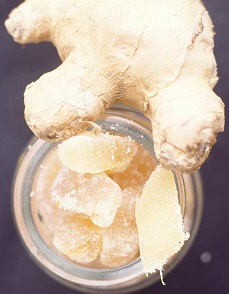Learn to Grow and Use Medicinal Herbs
The Lessons
- Scope and Nature of Medicinal Herbs
- Chemicals that are found in Herbs and Effects on the Human Body
- Ways Herbs are Used in Medicines
- Methods of Preparing Herbs for Medicinal Use
- Review 50+ plant species: their physical appearance, growing them, their chemical attributes, medicinal properties and uses.
- Working with Medicinal Herbs
Lesson Structure
There are 6 lessons in this course:
-
Introduction The Nature and Scope of Medicinal Herbs
-
What Are They?
-
Uses of Medicinal Herbs
-
The Evolution of Medicinal Herbs
-
The Scope of Medicinal Herbs
-
Chemicals in Herbs and Their Effects on the Body
-
Terms Used To Describe Medicinal Effects of Herbs
-
Types of Chemicals found in Medicinal Herbs
-
Other Terms Describing Medicinal Herbs
-
Ways Herbs Are Used
-
Different Applications
-
Medicinal Uses
-
Some Important Points
-
Methods of Preparing Herbs for Use
-
How to Make Herbal Tea
-
How to Make Herbal Decoctions
-
How to Make Herbal Ointments
-
Directory of Medicinal Herbs
-
Agrimonia eupatoria
-
Allium sativum
-
Aloe vera
-
Alpinia galanga
-
Angelica archangelica
-
Armoracia rusticana
-
Asparagus officinalis
-
Asperula odorata (syn. Galium odoratum)
-
Betula spp.
-
Borago officinalis
-
Calendula officinalis
-
Cannabis sativa
-
Capsicum annum
-
Citrus limonum
-
Echinacea purpurea
-
Elettaria cardamomum
-
Eucalyptus spp.
-
Ficus carica
-
Foeniculum vulgare
-
Glycyrrhiza glabra
-
Humulus lupulus
-
Hyssopus officinalis
-
Lavandula angustifolia (syn. L. officinalis)
-
Levisticum officinale
-
Linum usitatissimum
-
Matricaria recutita (syn M. chamomilla)
-
Melaleuca alternifolia
-
Melissa officinalis
-
Mentha x piperita
-
Mentha pulegium
-
Mentha spicata (syn. M. viridis)
-
Oenothera biennis
-
Origanum vulgare
-
Panax quinquefolius
-
Papaver orientale
-
Petroselinum crispum (syn. P. sativum)
-
Pimpinella anisum
-
Rheum palmatum
-
Ribes rubrum
-
Rosmarinus officinalis
-
Rubus idaeus
-
Ruta graveolens
-
Salix alba
-
Salvia officinalis
-
Sanguisorba officinalis
-
Satureja hortensis
-
Symphytum officinale
-
Taraxacum officinae
-
Thymus vulgaris
-
Ulmus rubra (syn. Ulmus fulva)
-
Valeriana officinalis
-
Vanilla aromatica
-
Zingiber officinale
-
Working with Medicinal Herbs
-
Selling Medicinal Plants: Opportunities
-
Where to Market Herb Products
-
Processing Concerns
-
Starting a Herb Business
-
Planning
-
Preparing a Business Plan for a Herb Farm or Nursery
-
Production Requirements
How Your Course Works
- Enrol any time. Your enrolment will be processed usually within a day or two; and during business hours, often within an hour.
- You
will then receive an email explaining the course and how to access to a
study guide, and our help desk. The guide contains both an audio and
written explanation of how the course can be undertaken in a way where
you can choose to emphasise or de-emphasise aspects of your learning,
according to where your greatest interest or needs may lay.
- You
then follow the study guide, reading and undertaking varied learning
tasks, designed by professional educators to broaden and deepen your
understanding of the subject. These tasks can vary from practicals to
research and more.
- If and when you need to; you can contact our academic staff via a help desk. Emails are answered every working day.
- On
concluding each lesson, you are presented with a series of automated
self assessment questions, to review and reinforce your learning
experience.
- On conclusion of all lessons; you are presented with
a major online exam; comprising lots of questions, reflecting the scope
of all lessons.
- A final exam is able to be tackled in
completion of all lessons; and when you feel comfortable and confident
of having understood and retained most of what has been studied.
- The
exam is assessed in our online training system immediately it is
submitted; and if you achieve a result of 60% or more, you are given
access to download a “Certificate of Completion” This certificate
carries your name (extracted from the original enrolment order);
together with a current date, and carrying endorsements from this school
and the ACS Global Partners Network.
Everything is
automatic; but if you do need help at any point along your journey of
discovery; but there is a help desk, with real people who have real
expertise –only an email away.
LOTS MORE SHORT COURSES at http://www.studyacs.com/category-courses-short-397.aspx
ENROL or Use our FREE Course Advice Service to Connect with a Tutor